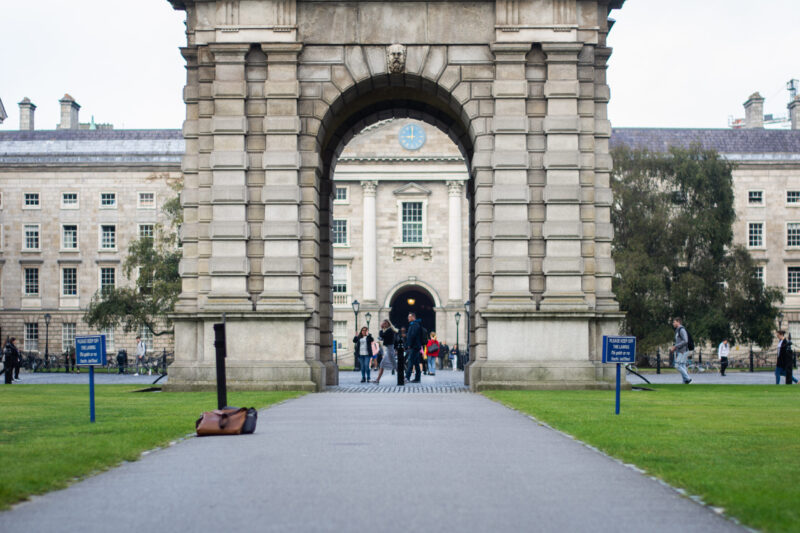Three Trinity researchers have been awarded European Research Council (ERC) Advanced Grants.
The prestigious awards, worth up to €2.5 million over a period of 5 years, are given to leading researchers with “a track-record of significant research achievements in the last 10 years”.
The successful researchers are Jennifer McElwain, Seamus Martin, and Daniel Kelly.
McElwain, who is a professor of botany, will lead the TERRAFORM project, which aims to examine the impact of plant evolution over the last 300 million years on natural processes including the water cycle and weathering.
Speaking after the announcement, McElwain explained the origin of her project’s name, saying: “Terraform is a word we often associate with science fiction and the transformation of planets other than Earth.”
“I am interested in how plants made our planet habitable over millions of years.”
She added: “I will use [the] advanced grant funding from the ERC to understand the global scale processes and pathways through which plant life and plant evolution have altered or ‘terraformed’ Earth.”
The second Trinity project supported by the ERC’s grants is DeSTRESS, an initiative led by Seamus Martin, the Smurfit professor of medical genetics, which will investigate “smouldering inflammation” caused by conditions such as cancer, obesity, neurodegeneration and diabetes.
The project aims to identify molecules that prompt this form of inflammation through their response to cellular stress.
In a press statement, Martin said: “I am delighted and honoured to be awarded an ERC Advanced grant to explore the underlying causes of cell stress-induced Inflammation.”
“Exactly how smouldering inflammation is triggered is very poorly understood at present.
“We suspect that persistent cellular stress, provoked by misfolded proteins and other causes, switches on specific cellular alarm systems that are instrumental in driving smouldering inflammation, but the molecules involved have yet to be identified.”
The final Trinity project supported by an ERC Advanced Grant is 4D-Boundaries, led by Daniel Kelly, a professor of tissue engineering, which aims to create two new bioprinting platforms that may be used to produce “patient-specific cartilage and meniscus grafts”.
These bioprinted tissues will “mimic the internal and external anatomy and complex mechanical properties of the native tissues,” and may help to treat the debilitating disease osteoarthritis.
Discussing his research, Kelly said: “My team has spent over 15 years exploring how different tissue engineering and 3D bioprinting strategies can potentially be used to regenerate damaged tissues and organs.
“We believe the outputs from the project will eventually impact the clinical treatment of damaged joints and lessen the burden of diseases like arthritis.”
These awards bring Trinity’s total ERC Investigator Grants up to 44 under the Horizon 2020 framework. In total, these awards have provided €83 million in funding for College’s research.
Speaking after the announcement, Provost Patrick Prendergast said: “It’s a great achievement for Trinity researchers to win three of these highly competitive European Research Council Advanced Grants, totalling €7.7 million.”
“The funding for these three projects will support Jennifer, Seamus and Daniel in delivering ambitious, impactful research projects, and in growing their teams while collaborating with others around the world.
“All of these things are important for Trinity to continue to compete with the very best universities in the world.”







